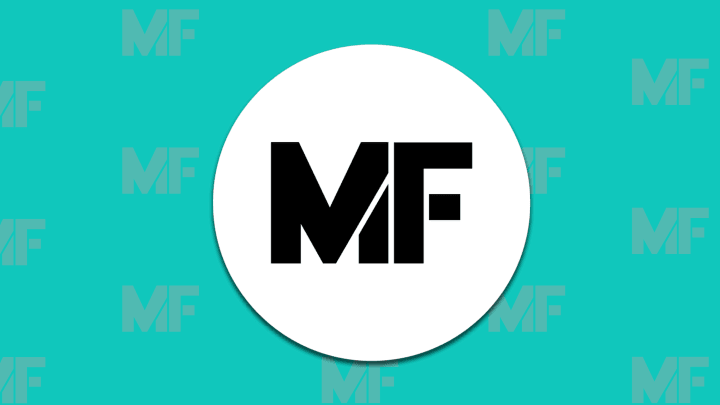Wikimedia Commons // CC BY 2.0
Back in 2010, the FDA took action against Four Loko and other caffeinated alcoholic beverages, after many states, cities, and colleges enacted their own sanctions against the allegedly dangerous combo. Caffeine, they argued, masked some of the effects of alcohol, causing people to drink to excess and engage in risky behavior. In the U.K., however, caffeinated adult beverages are still technically legal—although they may not be for long, thanks to one in particular product that has stirred up controversy.
It doesn’t have the candy flavors or spring break-esque branding that Four Loko does—if anything, the drink in question is the anti-Four Loko. The so-called tonic wine, which tastes a little sweet and a little spiced, has been brewed for more than a century at Buckfast Abbey in southwestern England. But while the Benedictine monks who brought the recipe with them from France in the 1880s had purely innocent intentions—originally, they sold the fortified wine as a medicinal product—modern teens have found it to be the perfect accompaniment to a night of hard partying. The problem is particularly rampant in Scotland, where the wine is so popular that last month Glasgow celebrated its inaugural National Buckfast Day "dedicated to the World's Greatest Wine."
The plan is to make the event an annual tradition—unless some new legislation banning Buckfast succeeds, that is.
The problem isn't necessarily the drink itself, argues Dr. Richard Simpson, the member of Scotland's Parliament responsible for introducing the ban on caffeinated alcohol. "It is a perfectly good drink if consumed modestly as a tonic wine," Simpson told the New York Times. "It is a pity that it has become what it has become." Detailing some of the risks that caffeinated wine consumption entails, he explained that caffeine-alcohol hybrids "make wide-awake drunks. You are more likely to drive, and there is much more of a sexual risk. If you drink enough alcohol you eventually become comatose, but if you combine it with caffeine you can go through a fairly aggressive phase before you become comatose."
He and other opponents have reason to think that the monk-made beverage is cause for concern. A 2009 report for the Scottish prison service found that four in 10 respondents listed Buckfast as their favorite drink; 43.3 percent even admitted to consuming Buckfast before committing a crime.
The Abbey's members have declined to comment, but the sales manager for Buckfast’s distributor, Stewart Wilson, called the criticism of the wine "religious bigotry."
Buckfast Abbey also happens to be a popular tourist attraction, and is currently gearing up for its 2018 millennium anniversary. Locals worry that the controversy could cost the area valuable jobs. Although the Abbey has not made information about its income available to the public, reports say that it received about £6.6 million, or more than $10 million, from its business interests in 2012—the majority of which came from sales of tonic wine. Profits are used to pay employee salaries, although the Abbey also reportedly gives a sizable amount of cash back to the community.
It's not clear yet what the fate of the notorious beverage will be, so if you find yourself in Scotland in the near future, give it a try—it may be your last chance to do so. Just remember to drink responsibly.
[h/t New York Times]
